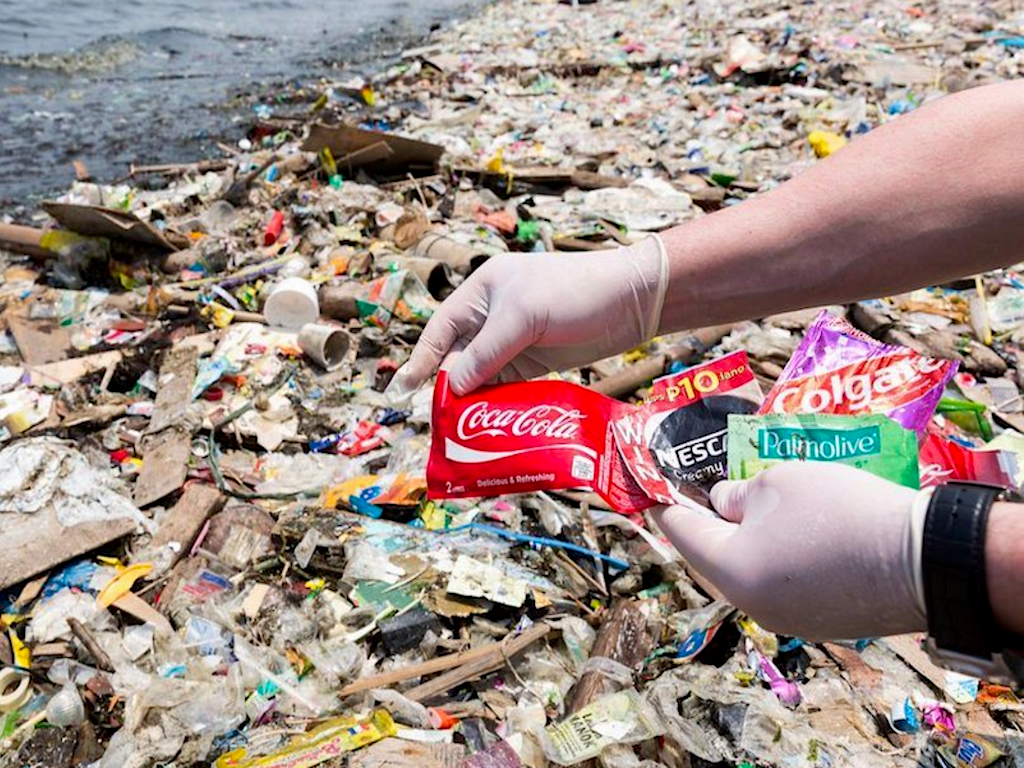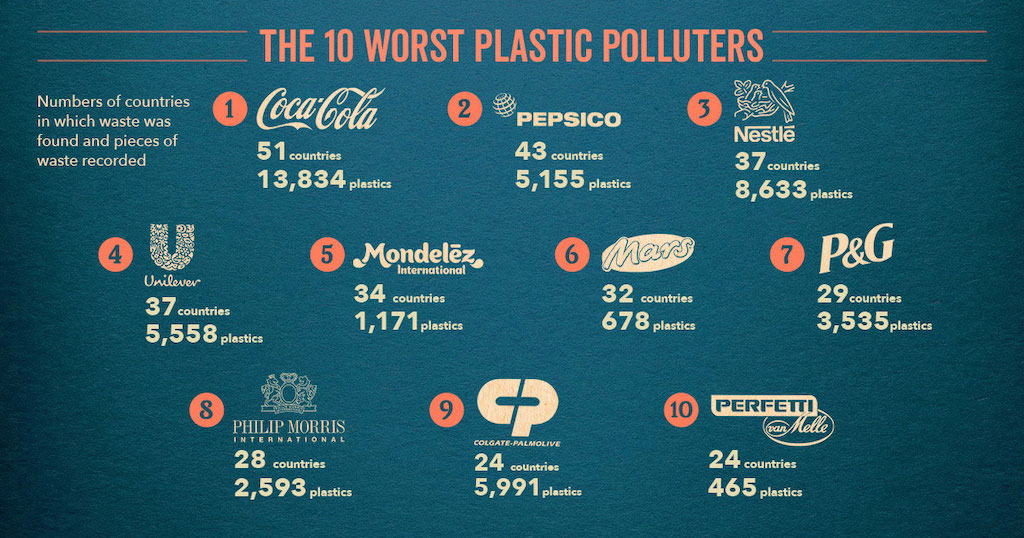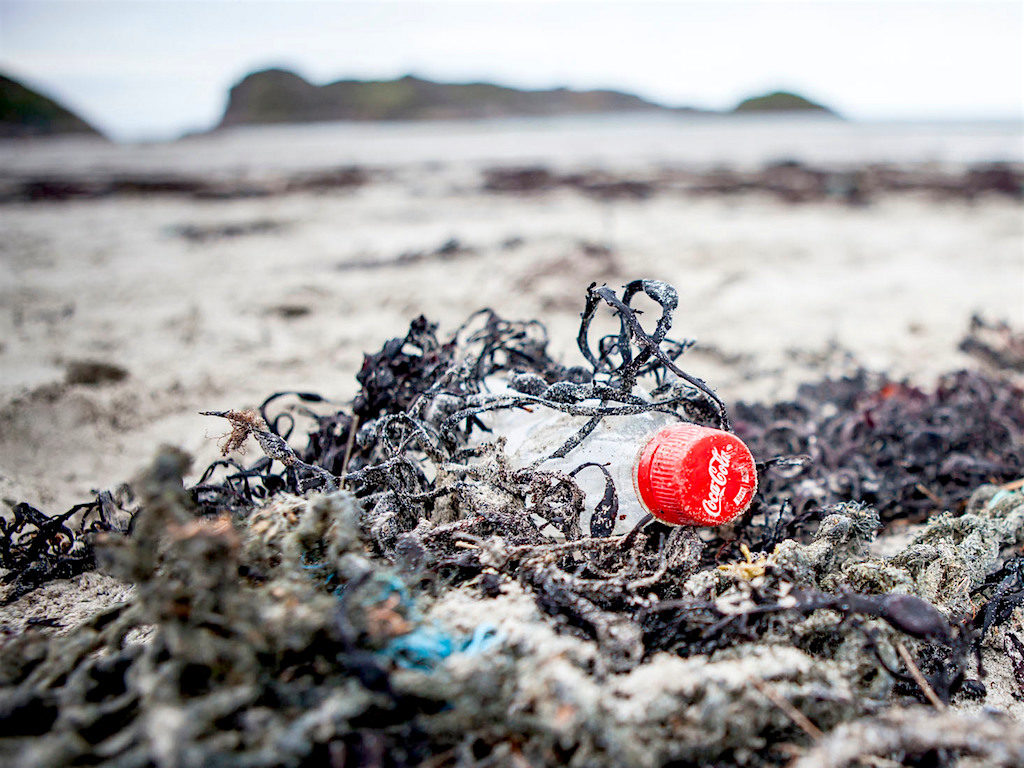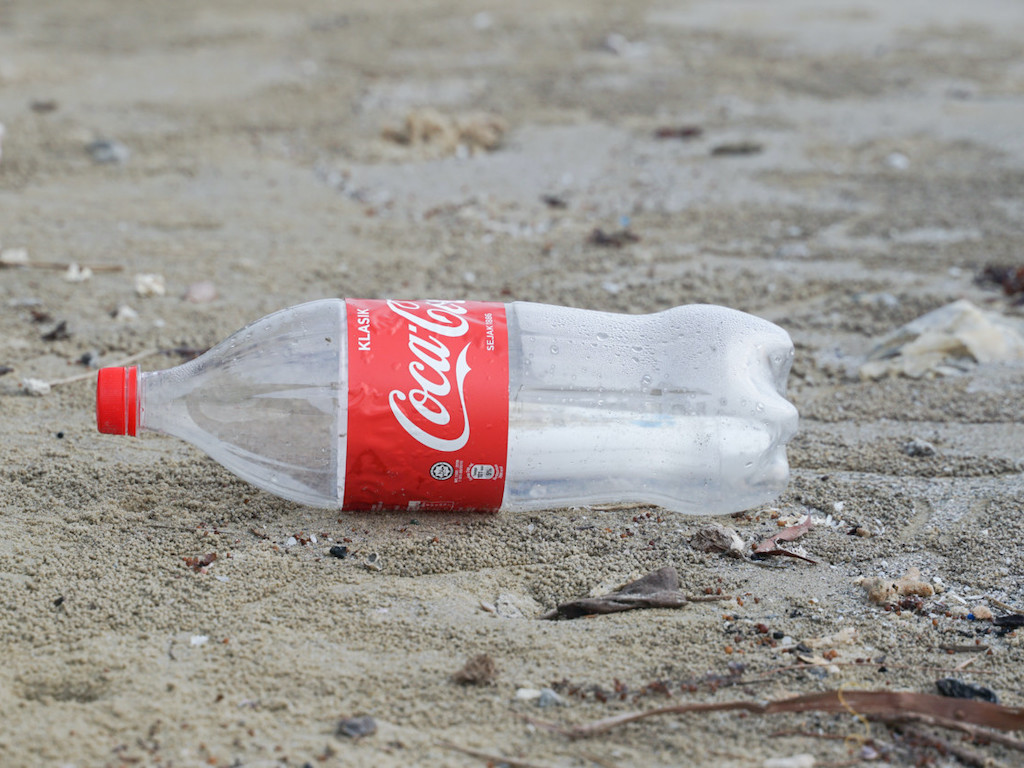5 Mins Read
Beverage giants Coca-Cola, PepsiCo and Nestlé have again topped the list for being the world’s biggest polluters for the third year in a row, showing no progress despite a slew of sustainability claims and pledges the firms have made in recent years. The annual audit, conducted by nonprofit Break Free From Plastic, named Coca-Cola as the worst polluter of all globally, with its branding found on more pieces of litter than the other two corporations combined.
Break Free From Plastic’s annual audit this year showed “zero progress” on the part of FMCG giants Coca-Cola, PepsiCo and Nestlé, ranking them as the three biggest polluting companies in the world for the third consecutive year. Coca-Cola was found to be the worst culprit of all, with its plastic beverage bottles found littered across beaches, rivers, parks and other environmental sites in 51 out of 55 countries surveyed in the study, up from its previous figure of 37 countries recorded in the audit in 2019.
The world’s top polluting corporations claim to be working hard to solve plastic pollution, but instead they are continuing to pump out harmful single-use plastic packaging.
Emma Priestland, Global Corporate Campaign Coordinator, Break Free From Plastic
Coca-Cola’s total plastic pollution by number was also more than PepsiCo and Nestlé combined – its branding was on nearly 14,000 pieces of plastic, compared to the 5,155 attributable to PepsiCo and 8,633 Nestlé is responsible for.
This year’s audit was undertaken by 15,000 volunteers and collected more than 346,000 pieces of plastic waste, of which nearly two-thirds of the total plastic (63%) was labelled by a clear consumer brand. Other brands that made the top ten list in the report include Unilever, Mondelez, Mars, Procter & Gamble, Philip Morris, Colgate-Palmolive and Perfetti Van Melle.

Speaking about the results, Emma Priestland, global corporate campaign coordinator at Break Free From Plastic, said: “The world’s top polluting corporations claim to be working hard to solve plastic pollution, but instead they are continuing to pump out harmful single-use plastic packaging.”
“We need to stop plastic production, phase out single-use and implement robust, standardised reuse systems. Coca-Cola, PepsiCo, and Nestlé should be leading the way in finding real solutions,” Priestland added.
These findings cast huge doubt on the bold sustainability claims that all three top polluting firms have been making in recent years, suggesting that such pledges have amounted to little more than greenwashing and marketing techniques.
Top polluting companies are not only failing to meet their already weak commitments, they are increasingly relying on greenwashing to present an outward mirage of sustainability while continuing to delay, distract, and derail real progress.
Break Free From Plastic, Global Brand Audit 2020

While Coca-Cola has publicly said they are investing in plastic recovery projects, recycling infrastructure and have launched a technological partnership to recycle poor quality PET plastics from ocean waste since last year’s audit, the company has had little results to show and have demonstrated that its plastic production and use has actually increased year-on-year. It also casts doubt on the authenticity of Coca-Cola’s vow that it will lower its emissions to net-zero by 2040 – a move that will require a drastic overhaul of its addiction to petroleum-based plastics.
“Coca-Cola has actually increased the amount of plastic they use. Top polluting companies are not only failing to meet their already weak commitments, they are increasingly relying on greenwashing to present an outward mirage of sustainability while continuing to delay, distract, and derail real progress,” wrote the authors of the report.
Nestlé, on the other hand, has launched a sustainable packaging initiative this year, saying that it will aim to make all of 100% packaging recyclable or reusable and to slash its consumption of virgin plastics by at least a third by 2025. Similar commitments have been made by PepsiCo, who say they will target making 100% recycled plastic bottles by as soon as 2022.
“These companies claim to be addressing the plastic crisis yet they continue to invest in false solutions while teaming up with oil companies to produce even more plastic,” said Abigail Aguilar, plastics campaign regional coordinator at Greenpeace Southeast Asia. “To stop this mess and combat climate change, multinationals like Coca-Cola, PepsiCo, and Nestlé must end their addiction to single-use plastic packaging and move away from fossil fuels.”

Corporate giants have also displayed instances of greenwashing of other environmental issues too, such as the deforestation-free efforts Nestlé claims it has made since 2010. In its latest “forest footprint” report that was publicly disclosed just this December, the Swiss food giant revealed that it has yet to actually achieve its “no-deforestation” goal that it set for 2020.
In a statement, Gemma Tillack, forest policy director at Rainforest Action Network (RAN), while commending the move by Nestlé to publicise its forest footprint, warned it showed that large corporations still have a long way to go when it comes to demonstrating measurable achievements.
“All of these companies and many more have made lofty ‘No Deforestation’ commitments that were supposed to be realised by 2020,” said Tillack. “As the year ends, it’s clear that, until now, none of them even had a true and transparent accounting of the forests and communities affected by their use of forest-risk commodities or their financing…Time is running out.”
Lead image courtesy of Shutterstock.




